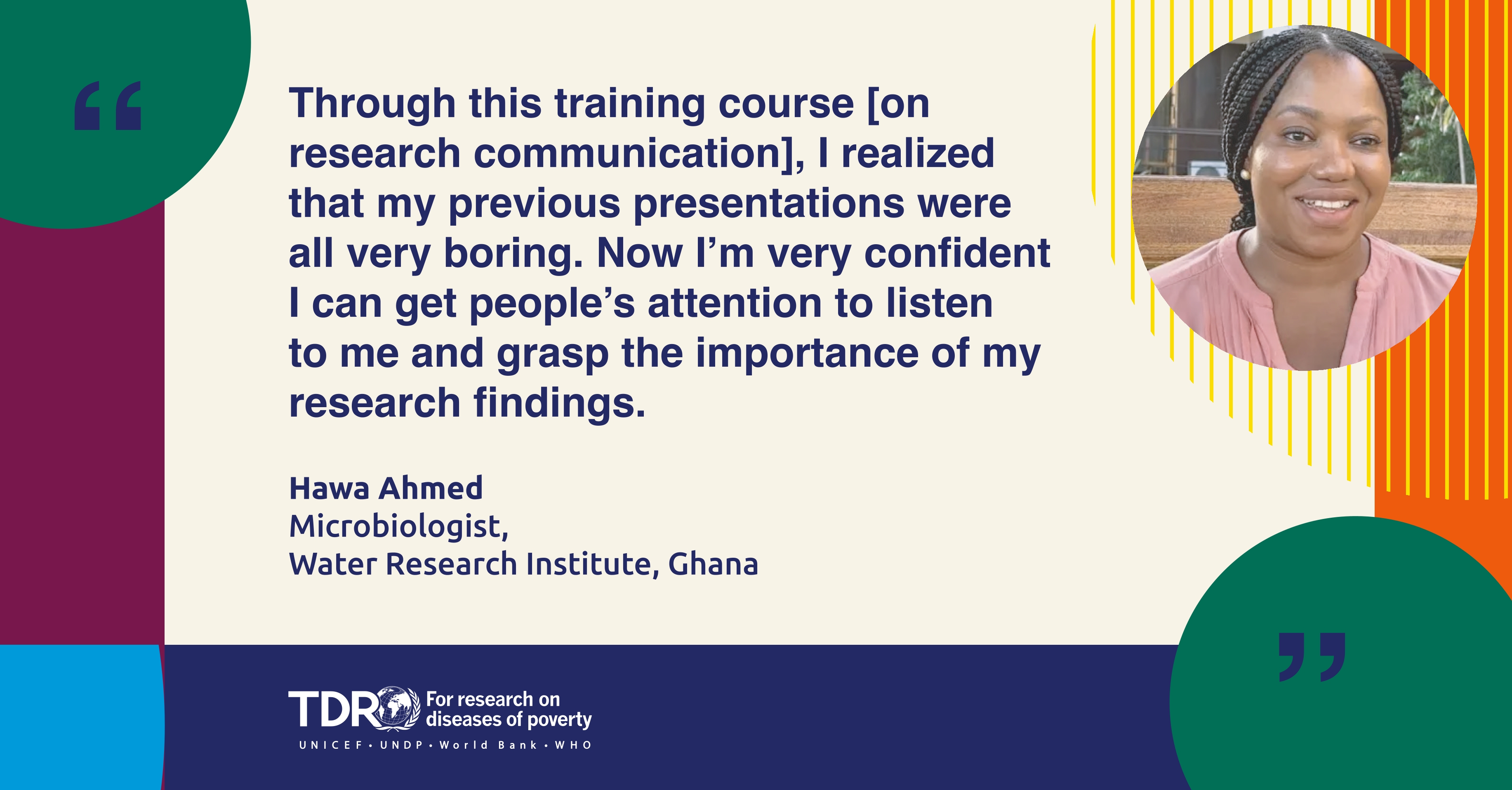A free, online training course is now available to help researchers bridge the gap between evidence generation and real-world impact. Developed by TDR, the Special Programme for Research and Training in Tropical Diseases, the new massive open online course provides researchers with practical skills to increase the uptake of their findings for policy and practice changes.
The course was co-created with input from dozens of scientists and communication experts across the globe and is specifically designed for researchers who have published their findings and are now seeking to influence change.
“The job is not done when we publish that paper. The job is done when it actually makes a difference and changes practice,” said John Reeder, Director of TDR while this course was being developed. “And the truth of it is, there’ll be very few politicians who will be reading that edition of the journal and the details in those papers.”

The training course covers:
-Writing a 2-page plain language summary (evidence brief)
-Identification and mapping of key stakeholders
-Developing a communication plan
-Creating a 10-minute technical presentation and a 3-minute lightning presentation
-Crafting a 1-minute elevator pitch
-Working with the news media and developing a social media tile
The course was developed under TDR’s Structured Operational Research and Training Initiative (SORT IT) that trains people in low- and middle-income countries to address operational issues affecting their disease control programmes through research. Since 200914, SORT IT has supported more than 1000 participants from 94 countries to learn how to develop an operational research protocol, analyse data and write and publish their work.
The year-long SORT IT course, which includes the communications module, is taught in person with one-on-one mentoring in four week-long sessions. To expand access and flexibility, TDR has adapted the communications training module into a self-paced online format with video tutorials, exercises and practical tools taken from the in-person approach.
Participants from the in-person training course have rated it highly. “These days, I think we have very short attention spans, so you have to consider the limited time you have to capture people’s attention,” said Nana Akua Abruqua, a physician in Ghana. “Being able to narrow everything down into one minute or three minutes, yet still capturing the essence of the message, was very useful for me.”
The online course is self-paced with under three hours of video lectures. Online participants will receive certification from TDR after completing the course and scoring at least 80% on a quiz, providing them with not only the skills but also the credibility to utilize the process and teach others in their institutes and countries.
“Decision-makers, governments and corporations around the world are fraught with an onslaught of decisions and information,” Adalsteinn Brown, Dean of Dalla Lana School of Public Health, University of Toronto, said on a recent episode of TDR’s Global Health Matters podcast. “They need help making sense of it all. So I do believe communication is a critical skill to have.”
For more information, please contact Dr Rob Terry.

